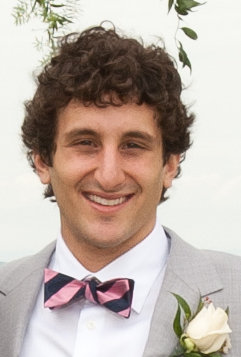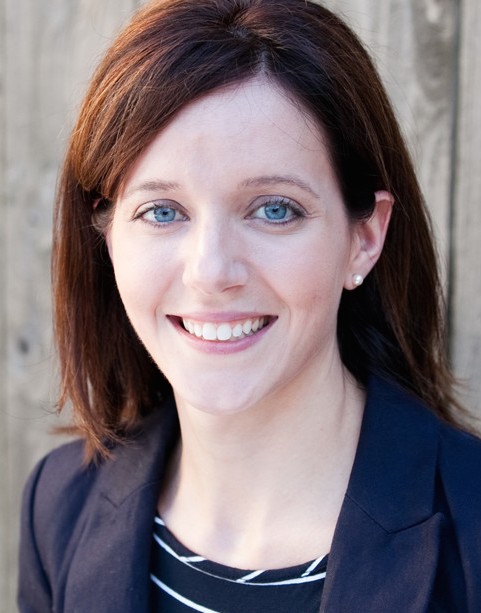Call for Participation
We seek submissions that will contribute to the creation of the final position paper with respect to the above themes. All submissions should be less than a page and should contain two parts:
- Describe one perceptual bias, and optionally up to two additional biases outside your area of expertise, that meaningfully impact the way one or more social media systems are used and/or that are impacted by the use of social media (theme 1).
- A brief sketch of a potential project or an existing work that addresses themes 2, 3 or 4 from above with respect to one or more social media systems.
Please sent your submissions to pbsm2017@gmail.com. The deadline for submissions is March 8th Friday, March 24th at 8PM EST. The final position paper will be published in a venue chosen by workshop participants, and everyone who makes a submission and attends the workshop will be invited as a contributing author to the position paper.
Program
Session 1 (1:30-5:30)
1:30-1:40: Introduction - Introduce the organizers and provide an outline of the workshop's activities.
1:40-2:00: Meet workshop participants - Allow all participants to introduce themselves, their research interests and their interests in the topic of the workshop.
2:00-2:40: Keynote 1 - Dr. Alice Marwick
2:40-3:15: Break-out groups: Participants will organize into groups of 3-4 people and discuss the various perceptual biases raised by workshop submissions, determining which they think are the most important.
3:15-3:30: Discussion of group results and collective decision on which biases to include in the paper.
Coffee break (3:30-4:00)
Session 2 (4:00-5:30)
4:00-4:40: Keynote 2 - Dr. Christo Wilson
4:40-5:15: Break-out groups: Participants will organize into different groups of 3-4 people and discuss Questions 2-4 with a focus on perceptual biases of particular importance.
5:15-5:30: Discussion and conclusions - Including determining a path for finalization of the position paper and submission details.
Organizers
 Nir Grinberg is a Research Fellow at the Harvard Institute for Quantitative Social Science jointly with the Lazer Lab at the Network Science Institute of Northeastern University. In his research, he combines machine learning, natural language processing and statistical methods to learn about human behavior in the real-world using large-scale datasets. The principle goal of his research is to influence system design to enable people to allocate their attention more efficiently and effectively. His dissertation focused on computational methods in the study of individuals' attention online, for example to digital news or social media. He completed his PhD in Computer Science at Cornell University, advised by Prof. Mor Naaman, as part of the Jacobs Institute at Cornell Tech. He interned at Facebook (x2), Yahoo! Labs, SocialFlow, and Bloomberg. He holds a MS in Computer Science from Rutgers University and a double major B.Sc. in Physics and Computer Science from Tel-Aviv University.
Nir Grinberg is a Research Fellow at the Harvard Institute for Quantitative Social Science jointly with the Lazer Lab at the Network Science Institute of Northeastern University. In his research, he combines machine learning, natural language processing and statistical methods to learn about human behavior in the real-world using large-scale datasets. The principle goal of his research is to influence system design to enable people to allocate their attention more efficiently and effectively. His dissertation focused on computational methods in the study of individuals' attention online, for example to digital news or social media. He completed his PhD in Computer Science at Cornell University, advised by Prof. Mor Naaman, as part of the Jacobs Institute at Cornell Tech. He interned at Facebook (x2), Yahoo! Labs, SocialFlow, and Bloomberg. He holds a MS in Computer Science from Rutgers University and a double major B.Sc. in Physics and Computer Science from Tel-Aviv University.
 Kenny Joseph is a postdoc at the Network Science Institute at Northeastern University and a fellow at Harvard’s Institute for Quantitative Social Science. He completed his graduate work in the Societal Computing program in the School of Computer Science at Carnegie Mellon University, where his dissertation focused on the development of new methods for the large-scale study of stereotype and prejudice. In general, his research focuses on developing a better understanding of the dynamics and cognitive representations of stereotypes and prejudice, and their interrelationships with sociocultural structure. Kenny's work has been published in a variety of outlets, including KDD, ICWSM, WWW, CSCW and the Journal of Mathematical Sociology.
Kenny Joseph is a postdoc at the Network Science Institute at Northeastern University and a fellow at Harvard’s Institute for Quantitative Social Science. He completed his graduate work in the Societal Computing program in the School of Computer Science at Carnegie Mellon University, where his dissertation focused on the development of new methods for the large-scale study of stereotype and prejudice. In general, his research focuses on developing a better understanding of the dynamics and cognitive representations of stereotypes and prejudice, and their interrelationships with sociocultural structure. Kenny's work has been published in a variety of outlets, including KDD, ICWSM, WWW, CSCW and the Journal of Mathematical Sociology.
 Brooke Foucault Welles is an Assistant Professor in the department of Communication Studies and a faculty affiliate of the Network Science Institute and NULab for Texts, Maps and Networks at Northeastern University. Dr. Foucault Welles studies how social networks shape and constrain human behavior, with a particular emphasis on how the recall and activation of network ties influences success in personal and team goals. In the past, Dr. Foucault Welles has examined how social networks influence friendship selection in online communities. More recently, her work focuses on how people come to recognize resources within their social networks and leverage them to achieve personal, organizational and social goals. Prior to joining the faculty at Northeastern University, Dr. Foucault Welles earned her Ph.D. from the department of Communication Studies at Northwestern University. She also holds BA and MS degrees in Communication Studies and Information Science from Cornell University.
Brooke Foucault Welles is an Assistant Professor in the department of Communication Studies and a faculty affiliate of the Network Science Institute and NULab for Texts, Maps and Networks at Northeastern University. Dr. Foucault Welles studies how social networks shape and constrain human behavior, with a particular emphasis on how the recall and activation of network ties influences success in personal and team goals. In the past, Dr. Foucault Welles has examined how social networks influence friendship selection in online communities. More recently, her work focuses on how people come to recognize resources within their social networks and leverage them to achieve personal, organizational and social goals. Prior to joining the faculty at Northeastern University, Dr. Foucault Welles earned her Ph.D. from the department of Communication Studies at Northwestern University. She also holds BA and MS degrees in Communication Studies and Information Science from Cornell University.